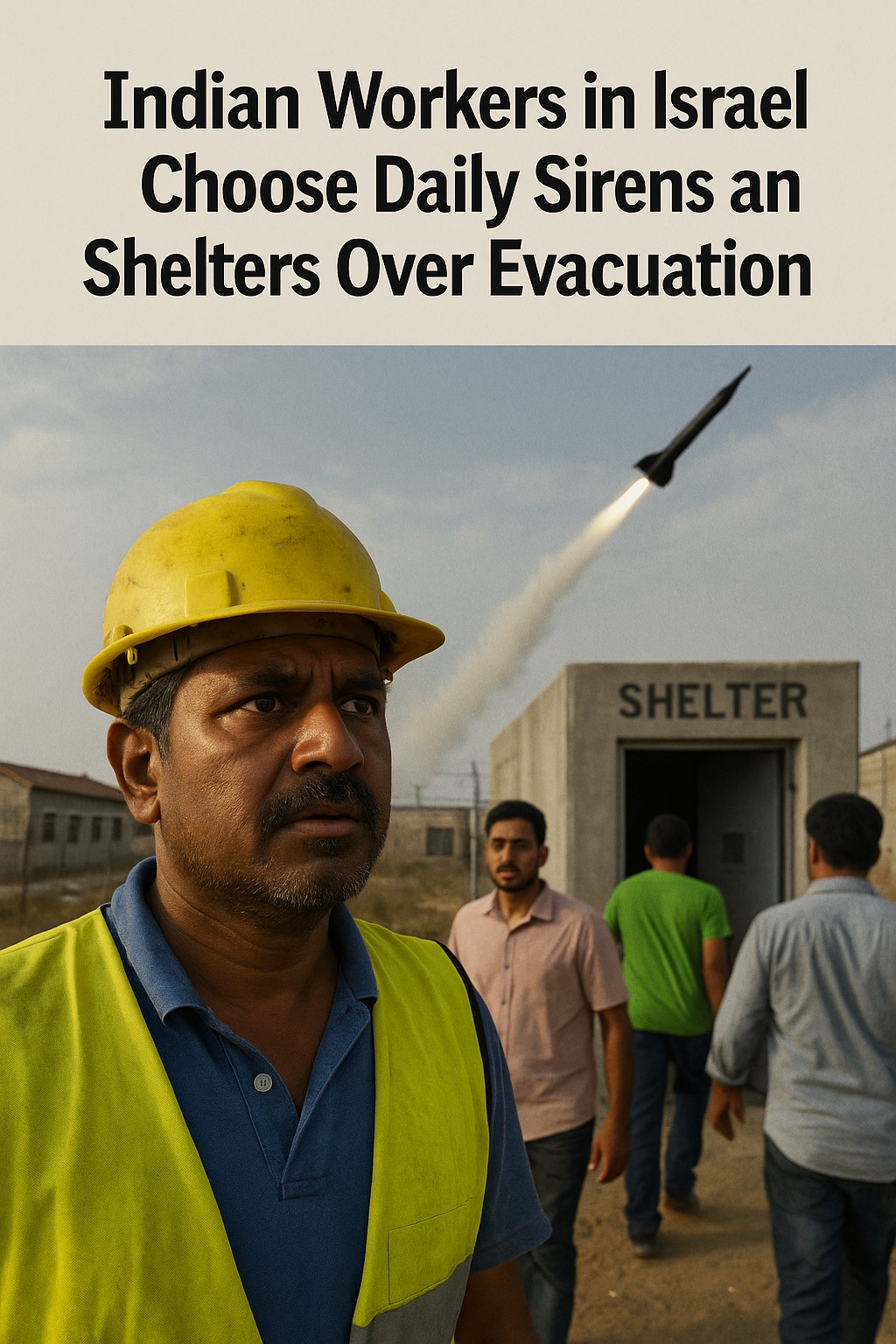
Indian Workers in Israel Choose Daily Sirens and Shelters Over Evacuation

 :
| Updated On: 26-Jun-2025 @ 1:00 pm
:
| Updated On: 26-Jun-2025 @ 1:00 pmSHARE
After the October 7, 2023 Hamas attack, Israel’s construction industry faced a severe workforce shortage due to the absence of Palestinian laborers. To address this, over 15,000 Indian workers were brought in under a bilateral agreement. These workers, employed as masons, carpenters, iron benders, ceramic tilers, and bakers, have now adapted to a new reality of living and working amidst escalating conflict with Iran.
Daily life for these workers is marked by the sound of sirens and alerts on their phones, signaling incoming missile attacks. Despite the threat, most Indian workers have chosen to remain in Israel, finding reassurance in the efficiency of Israel’s early warning systems and widespread availability of bomb shelters, known locally as “miklat.” These shelters range from small concrete structures accommodating a dozen people to large fortified public bunkers holding up to 1,500 individuals.
Mohan Lal, a foreman from Himachal Pradesh, says that while a few hundred workers have returned to India using the government’s June 19 evacuation offer, the majority feel safe and prefer to stay. He explains that after the June 13 Iranian missile strikes, the frequency of rushing to shelters has decreased to just once or twice daily. In his workplace at Palmachim, about 28 km from Tel Aviv, no visible damage was reported.
Workers like Dharamvir Singh from Haryana and Gurdeep Chouhan from Lod note improved warning times for recent missile attacks—20–25 minutes now, compared to 10–15 earlier. They highlight that smaller towns and suburban areas face less danger than major cities such as Tel Aviv, Jerusalem, and Haifa, which house critical infrastructure and are likely targets.
The Indian workers are earning between ₹1.5 to ₹2.5 lakh per month, a significant sum compared to average Indian salaries. Many express a preference to continue working in Israel, citing financial stability and respect from Israeli employers. Subhash Chand, a carpenter from Punjab, noted that the real threat is not direct strikes but falling debris from intercepted missiles by Israel’s Iron Dome. Despite panic among their families in India due to misleading videos of damage in Tel Aviv, he insists life is manageable and regrets would follow if they returned home without cause.
Surendra Singh Saini from Rajasthan shared that they’ve become used to the daily pattern of sirens and shelter drills. The intercepted missiles now resemble “patakaas” (firecrackers) in the sky, reducing fear among workers.
Several Indian supervisors have taken responsibility for the well-being of workers. Dharma Kachawa from Pushkar, Rajasthan, who has been in Israel for seven years, manages a WhatsApp group of 400 workers and works with the Israeli firm Solel Boneh. He monitors alerts and instructs workers to take shelter even before sirens sound, emphasizing vigilance.
Despite the risks, Indian workers in Israel are focused on stability, financial gain, and professional respect. Most plan to stay unless absolutely necessary, intending to return to India only briefly for occasions like Diwali.